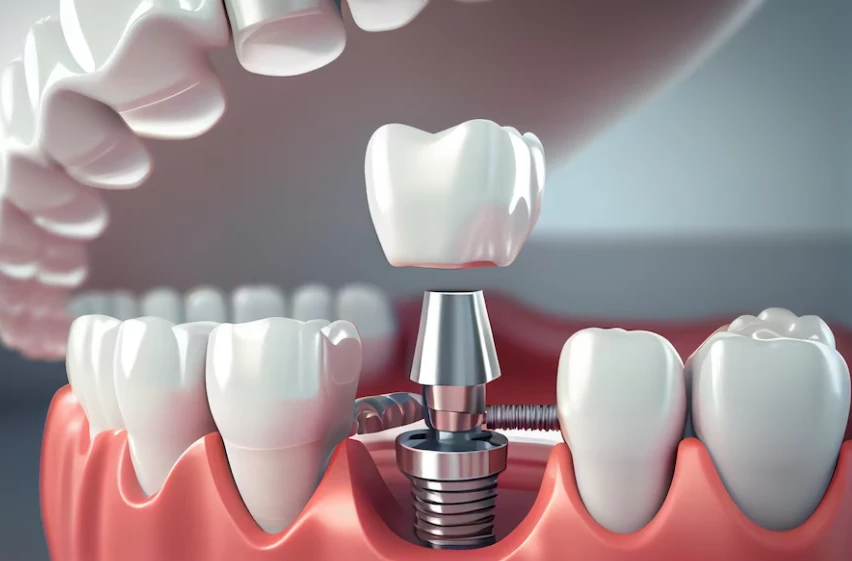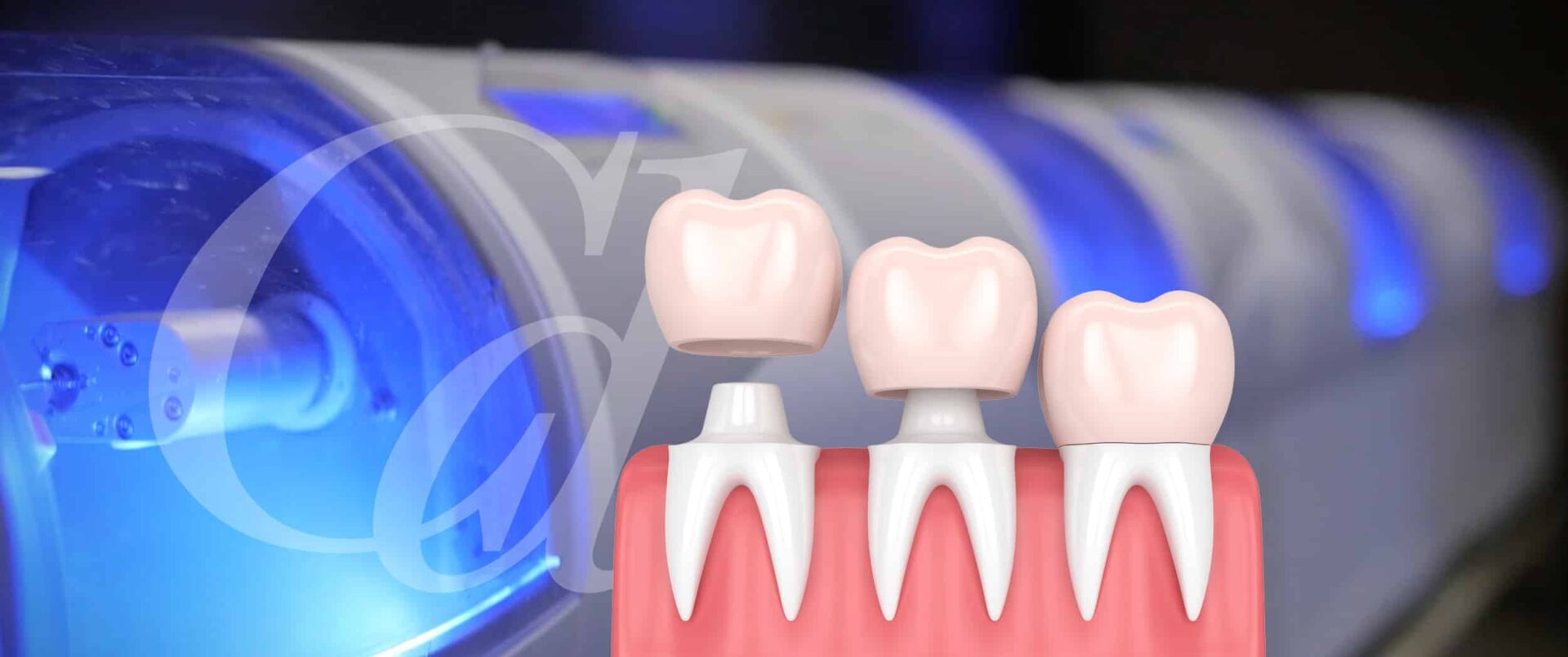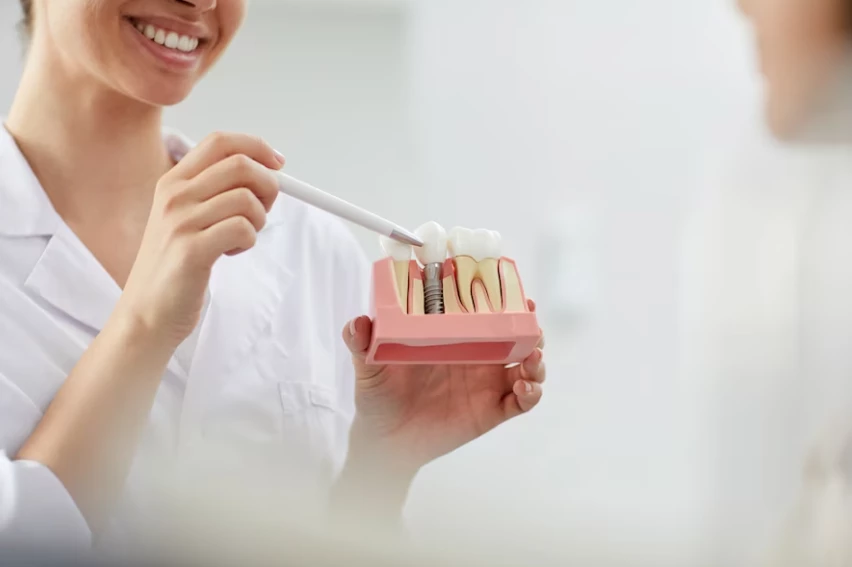Dental implants have completely revolutionized the way we replace missing teeth. They provide a durable, visually appealing option that restores both function and appearance. However, choosing the right type of dental implant involves carefully considering several factors, including the patient’s specific needs and the latest advancements in technology.
What Factors Should Be Considered When Selecting A Type Of Dental Implant?
To guarantee the greatest result, a number of important elements must be taken into account while selecting a type of dental implant. The patient’s general oral health is the most important thing. Gum disease and low bone density, for example, might greatly affect the kind of implant that is appropriate.
The location of the missing tooth also plays a critical role. Implants in the front of the mouth require more precise placement and aesthetic considerations compared to those in the back.
Another vital factor is the patient’s health history and any underlying medical conditions. Certain systemic health issues, like diabetes or osteoporosis, may affect healing and implant success. Additionally, the patient’s lifestyle and habits, such as smoking, can impact the longevity and success of dental implants.
Cost and time are also essential considerations. Some implant procedures may require multiple stages and can be more expensive, which might not be feasible for all patients. Consulting with a dental professional to discuss these factors comprehensively can help in making an informed decision about the most appropriate type of dental implant.
How Do Endosteal And Subperiosteal Implants Differ In Structure And Application?
Dental implants come in various types, with endosteal and subperiosteal being the most common. Understanding the differences between these two can help in making an informed choice.
Endosteal implants are the most widely used type of dental implant. They are typically shaped like small screws and are placed directly into the jawbone. This type of implant provides a strong and stable foundation for the artificial tooth, making it an excellent choice for patients with adequate bone density. The technique entails a short surgical incision to put the implant into the mandible. The implant and bone fuse during the healing phase, a process known as osseointegration. An abutment is affixed to the implant once it has completely integrated, supporting the replacement tooth or crown.
Conversely, individuals who are unable to undergo bone augmentation treatments or do not have adequate bone height may choose subperiosteal implants as an option. These implants are positioned above the mandible but beneath the gums.
Subperiosteal implants are placed on top of the bone rather than into it, and are held in place by a metal framework that protrudes through the gums. Although less prevalent, this kind of implant can be a great choice for people who have particular anatomical limitations or who would rather have a less intrusive treatment.
What Are The Latest Advancements In Dental Implant Technology?
Dental implant technology continues to evolve, bringing new advancements that improve outcomes and patient experiences. One of the most notable advancements is the development of 3D imaging and computer-aided design/computer-aided manufacturing (CAD/CAM) technology. These tools allow for precise planning and placement of implants, reducing the risk of complications and improving the fit and aesthetics of the final restoration.
Another significant advancement is the use of biocompatible materials that enhance osseointegration and reduce healing times. Zirconia implants, for example, are gaining popularity due to their aesthetic advantages and compatibility with the natural tissues in the mouth. These ceramic-based implants offer a metal-free alternative that can be particularly beneficial for patients with metal sensitivities.
Immediate load dental implants, also known as same-day implants, represent another exciting development. Immediate load implants allow a temporary crown to be placed the same day as the implant operation, whereas traditional implants require a healing period before the artificial tooth can be attached. This method shortens the duration of treatment and offers immediate return of appearance and function.
The application of growth factors and stem cell therapy, among other developments in regenerative medicine, is showing promise in augmenting bone regeneration and raising dental implant success rates.
How Does Bone Density Affect The Choice Of Dental Implant Types?
Bone density is a critical factor in determining the type of dental implant that will be most effective. Adequate bone density ensures that the implant can securely integrate with the jawbone, providing a stable foundation for the artificial tooth. Patients with high bone density are typically ideal candidates for endosteal implants, which require sufficient bone volume for successful placement and integration.
In cases where patients have low bone density or significant bone loss, alternative approaches may be necessary. Subperiosteal implants can be a viable option for these patients, as they do not rely on the bone for support in the same way as endosteal implants.
Additionally, bone grafting procedures can be performed to increase bone volume and create a suitable environment for endosteal implants. Bone grafting involves taking bone from another part of the body or using synthetic materials to build up the jawbone, allowing for successful implant placement in areas with insufficient bone density.
Innovative techniques such as sinus lifts and ridge expansion are also employed to address bone deficiencies in specific areas of the jaw. These procedures help create the necessary bone structure to support endosteal implants, expanding the options available for patients with varying bone densities.
Choosing the right type of dental implant involves careful consideration of multiple factors, including the patient’s oral health, bone density, and the latest technological advancements. By understanding the differences between endosteal and subperiosteal implants and staying informed about new developments, patients can make well-informed decisions to achieve optimal outcomes in their dental implant journey.
Frequently Asked Questions About Dental Implants at Cascade Dental
How long do dental implants last?
Dental implants have an extended lifespan with adequate upkeep. Maintaining proper oral hygiene and scheduling routine dental examinations are critical to the longevity of your implants.
What is the recovery time for dental implants?
The initial healing period after implant placement typically lasts a few weeks. However, complete osseointegration, where the implant fuses with the jawbone, can take several months. During this time, a temporary crown may be placed to restore function and aesthetics.
Are dental implants painful?
Because local anesthesia is used throughout the treatment, there will be little discomfort. Over-the-counter painkillers are usually effective in managing post-operative pain, and any discomfort normally goes away in a few days.
Can anyone get dental implants?
Dental implants can be placed in the majority of individuals who are in good general health and have enough bone density. Our specialists will assess your medical history and dental health during your appointment to see if implants are the best option for you.
How much do dental implants cost?
The cost of dental implants at Cascade Dental ranges from $3,000 to $5,000 per implant. This includes the implant, abutment, and crown. Additional procedures such as bone grafting may incur extra costs.
Do dental implants require special care?
Dental implants require the same routine dental checkups, brushing, and flossing as natural teeth. It’s essential to practice good dental hygiene to avoid problems and make sure your implants last a long time.
Schedule Your Consultation Today!
If you’re considering dental implants, Cascade Dental is here to help you achieve the smile of your dreams. Our expert team, advanced technology, and personalized care make us the ideal choice for your dental implant needs. Don’t wait any longer to restore your confidence and improve your oral health.
Schedule your consultation today and discover why so many patients trust Cascade Dental for their dental implant treatments. Contact us and schedule your appointment at Cascade Dental.



